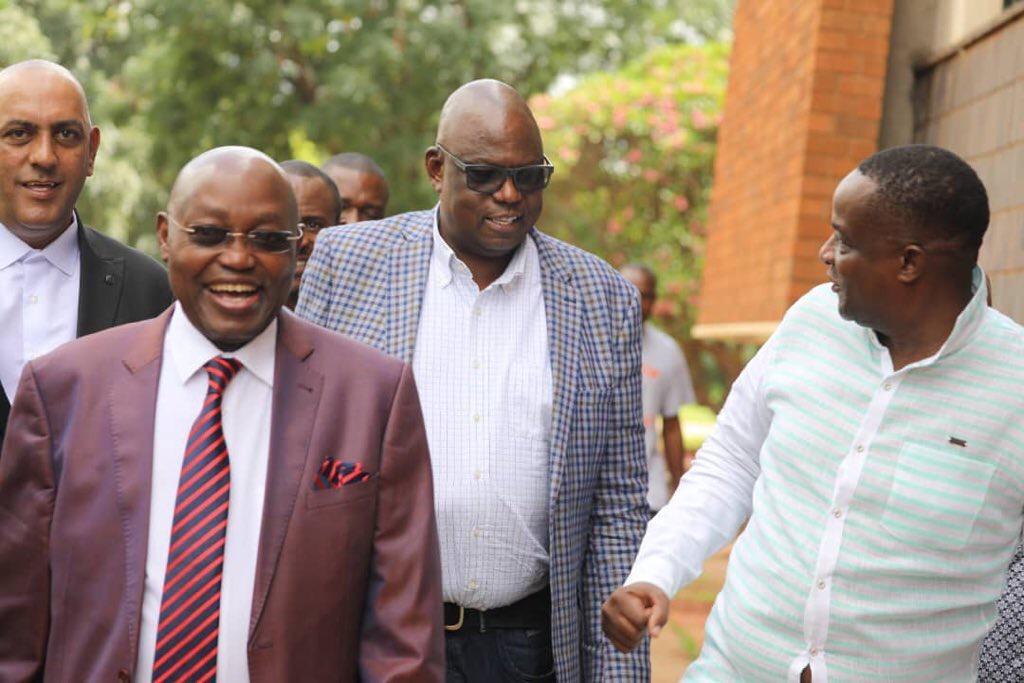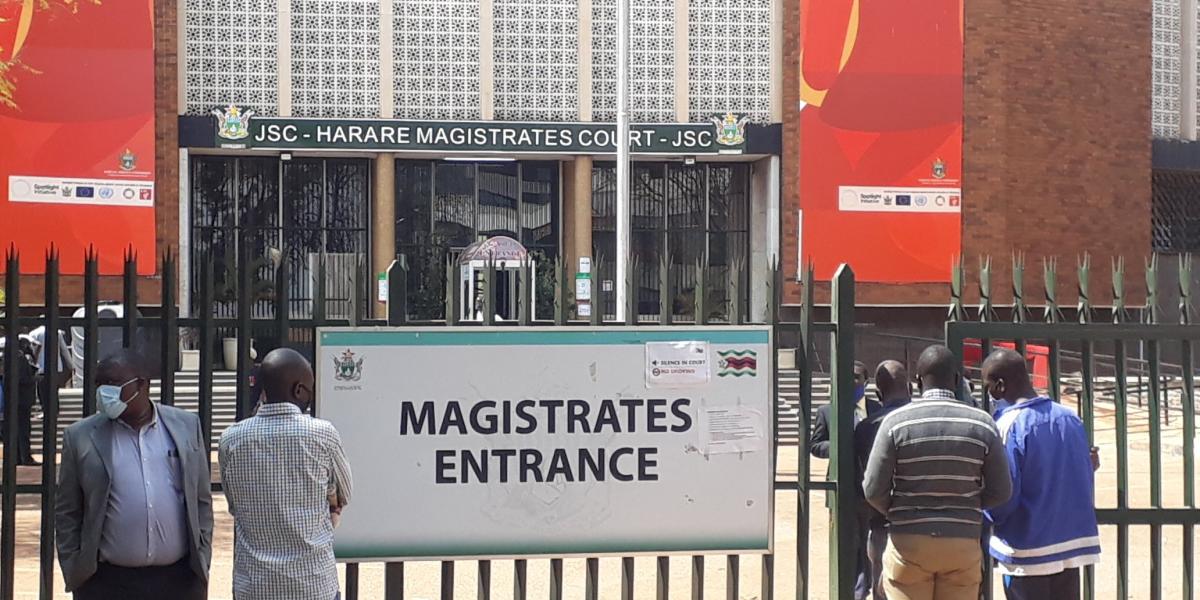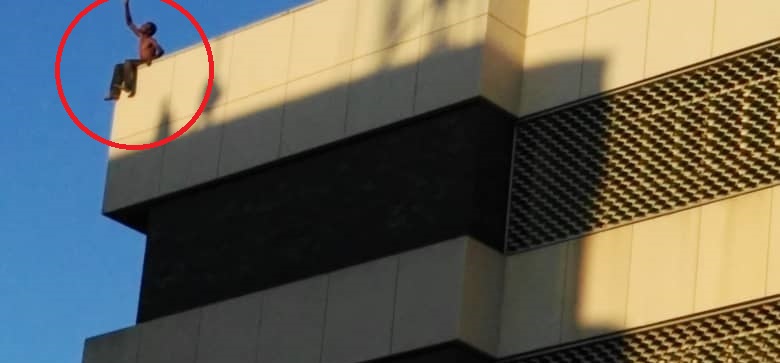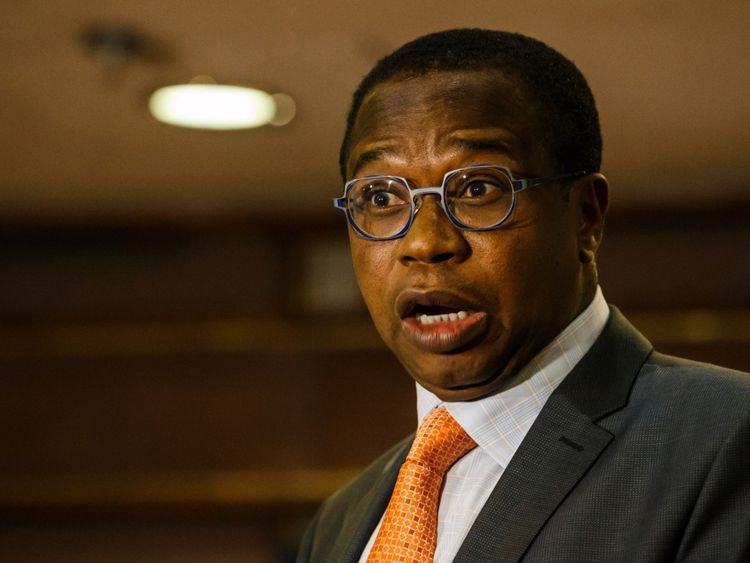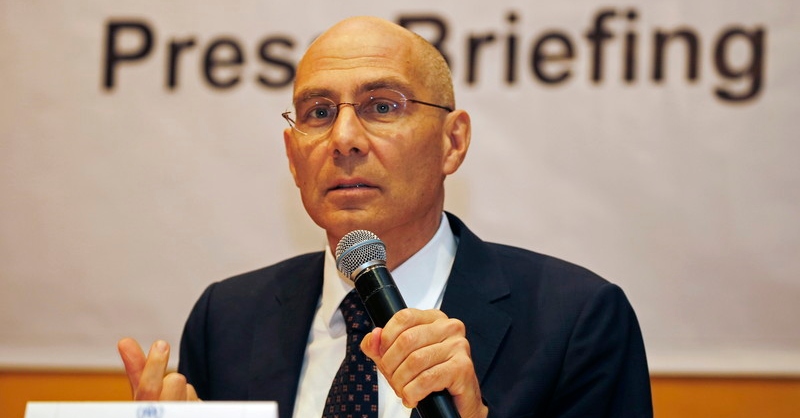HARARE – Chief Magistrate Mishrod Guvamombe was freed on $3,000 bail Saturday after being charged with criminal abuse of office.
Guvamombe, who was suspended following his arrest on Friday, is accused of allowing two former Cabinet minister – Supa Mandiwanzira and Saviour Kasukuwere – to undertake their internship at the Harare Civil Court while facing criminal charges at the Magistrates Court.
The two courts are not physically in the same building. The Civil Court is in Central Harare on 4th Street while the Magistrates Court is is on Rotten Row.
Mandiwanzira and Kasukuwere are both law students at the University of Zimbabwe and were to be attached to the Civil Court from December 17 until February 15, 2019.
The two men are on trial at the Magistrates Court for alleged corruption while they were ministers.
Guvamombe appeared before Harare magistrate Munamato Mutevedzi who heard allegations that he had threatened to release damaging information against some of the state witnesses lined up to testify against him.
Clemence Mashawi, the investigating officer, gave testimony that Guvamombe should be denied bail because he had threatened some witnesses.
“Most of the witnesses are his subordinates. He threatened that he has dossiers detailing their criminal activities and that he will expose them,” said Mashawi.
Guvamombe had also attempted to access some files relating to student attachment, which are the source of the charges, Mashawi said.
“When I went to the civil court seeking the files, resident magistrate Lazini Ncube referred me to provincial magistrate Elisha Singano who was coordinating attachment of University of Zimbabwe students. When I got to the Harare Magistrates Courts, I was informed that Guvamombe had called Singano into his office with the said files. When I interviewed Singano, he gave a statement which indicated he was being influenced not to testify against Guvamombe,” Mashawi told court.
“I was then called by the Judicial Service Commission (JSC) secretary Walter Chikwana who informed me that Singano has given another statement where he removed what he was told by the accused person.”
Mashawi testified that the deputy chief magistrate Elijah Makomo was present when Singano gave his statement.
The police officer also alleged that Guvamombe had tried to flee the country when he heard that he was going to be arrested by seeking medical leave to travel to India, which was rejected by the JSC.
When he was finally arrested, he allegedly got his doctor to write a note advising police that he should instead be detained at Parirenyatwa Hospital and not police holding cells on medical grounds.
“The doctor’s letter was written at the instigation of the accused person,” he said.
At that point, Zivanai Macharaga, leading the prosecution with assistance from Chief Law Officer Michael Reza, asked the magistrate to order Guvamombe’s lawyer Jonathan Samukange to stop making facial expressions and making sounds, alleging this was tantamount to giving evidence.
Samukange accused Mashawi of insulting him.
Mutevedzi advised the prosecution and defence lawyers to calm down, and then urged Mashawi to continue his evidence.
“The letter was being dictated to the doctor’s personal assistant at West End Clinic. He even suggested a possible review date. The letter was meant to stop us from detaining him at the station as it alludes to conditions the accused must avoid,” Mashawi continued.
The doctor’s letter, read in court, said Guvamombe must not be exposed to extremely cold conditions and should avoid sleeping on hard surfaces after he sustained near fatal injuries in a car crash.
Mashawi said they ignored the doctor’s note and detained Guvamombe at Rhodesville Police Station overnight on Friday.
Mutevedzi, after hearing the prosecution evidence, said it was not sufficient to deny Guvamombe bail.
As part of his bail conditions, Guvamombe must surrender surety valued not less than $30,000; must not to travel 50km out of Harare; should surrender passport and not interfere with witnesses.
He was remanded to January 25 for routine remand.
The prosecution says Guvamombe “acted contrary or inconsistent to his duties as a public officer” by allowing Kasukuwere and Mandiwanzira to intern at the court where they would be “mentored by the same magistrates involved in their criminal trials.”
Guvamombe, the court heard, insisted that the two were entitled to a presumption of innocence until proven guilty when the potential conflict was brought to his attention by Singano.
